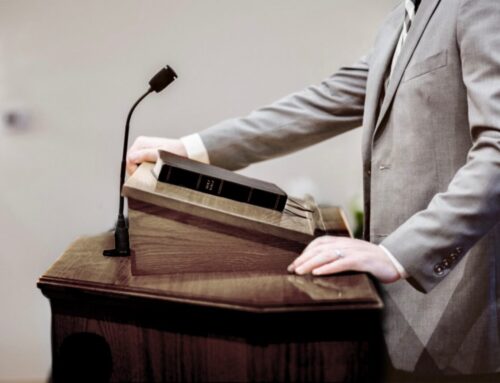Transgender pride flags at an event in Westminster in April
Don’t believe the end of world history as it has been known is near? Think everything is okay and will get better? Like residing in such darkness and delusion? This world has another 1,000 years? Man will figure everything out and human nature will change even though since the beginning human nature has not changed one iota, not one molecule or bit? Believe that man will create a better world, as it should be? Man just needs a bit more time?
Well, how about a dose of reality as to just how lost, sick, and of reprobate minds people have become and how turned to evil and utter insanity things have become?
Read on…
Ken Pullen, A CROOKED PATH, Wednesday, July 27th, 2022
Doctors set out medical guidelines for transgender men giving birth
Wednesday, July 27, 2022
By Eleanor Hayward, Health Correspondent
Reprinted from The Times [London]
Doctors have been told to offer “chestfeeding support” to men who give birth under Britain’s first medical guideline for transgender patients.
The Royal College of Obstetricians and Gynaecologists proposed the clinical standard for treating transgender men and women in the NHS. It sets out how childbirth, cancer screening and fertility treatment should be more inclusive of people who do not “conform to a binary man/woman dichotomy”.
The document, which uses the term chestfeeding not breastfeeding to describe giving milk to babies, has been published amid a row over the “desexing” of medical language to be more trans-friendly. Campaigners say that “desexing” medical language denies basic biology and risks dehumanising and marginalising women. This year the NHS was criticised for removing the word women from its main web pages on ovarian, womb and cervical cancers to be gender-neutral.
The royal college, which was founded in 1929, is responsible for postgraduate training of gynaecologists in Britain and sets clinical standards for childbirth and illnesses affecting female reproductive organs. The new draft guideline, which is subject to a six-week consultation, is the college’s first advice to doctors on care for trans people. It says they should use a patient’s chosen pronouns, adding: “Deliberate misuse of language associated with the sex assigned at birth (misgendering), may cause profound offence.”
The document also says that trans women should be put on female wards despite controversy over the issue as some patients self-identifying as women retain male sex organs. It details best practice for pregnancies in transgender men — those who identify as male but can carry a baby as they were born with female reproductive organs.
The royal college urges staff to ask men whether they want to “chestfeed” their baby, adding: “For trans men who choose to chestfeed, offer chestfeeding support in the same manner as for cis women [women whose gender identity matches their sex].” This section on “infant feeding” contains seven references to chestfeeding, which is seen as a gender-neutral term, mentioning breasts or breast milk twice.
Both men and women are born with breast tissue, but in women it also develops into a mammary gland during puberty to produce milk to feed babies.
The guideline notes “trans men may have different psychological reactions to pregnancy than cis women” and doctors should take this into account when discussing a birthing plan.
It adds: “While some strongly prefer a vaginal birth as an emotionally meaningful experience, others desire disconnection with the process and express a preference for caesarean birth.”
It says transgender people should be offered advice about fertility preservation before having gender hormone therapy. For example transgender women, who were born with male organs, should be offered the chance to freeze their sperm. It also says hysterectomies, when the womb is surgically removed, should be offered to transgender men.
The guidelines add that transgender men and non-binary people with female reproductive organs should always receive cancer screening invitations, including mammograms and smear tests.
Edward Morris, president of the royal college, said: “Sadly, trans and gender diverse individuals say they often feel judged and misunderstood by the health service. This can act as a barrier for them when it comes to accessing vital care and we as healthcare professionals have a role to play in making them feel listened to and recognised.
“This draft guideline is our first attempt to ensure we are providing personalised care for all our patients.”
The draft guideline will be open for consultation until September 6.
Phil Rolland, a consultant gynaecological oncologist who helped to write the guidance, said: “It is highly likely that if an obstetrician or gynaecologist hasn’t already consulted or treated a trans or gender diverse patient then it is only a matter of time before they do.
“We know that trans people are more likely to have poor experiences when accessing healthcare and we can do better.”
Why have guidelines been published?
Transgender men and women often face barriers to healthcare, partly because of a lack of knowledge or understanding within the medical profession. The Royal College of Obstetricians and Gynaecologists (RCOG) aims to address this by setting a “gold standard” for how doctors should treat trans patients. They hope all healthcare staff will refer to the guidelines.
What is the role of the royal college?
Founded in 1929, it sets clinical standards for women’s healthcare and helps train junior doctors. Its standards are not automatically implemented into the NHS but it lobbies trusts to adopt them.
Why is gender-neutral language in healthcare controversial?
Campaigners say “desexing” medical language denies basic biology and risks marginalising women. Earlier this year the NHS was criticised for removing the word “women” from internet pages on ovarian, womb and cervical cancers. It now says: “Anyone with ovaries can get ovarian cancer.” It also removed the word “women” and “woman” from its menopause guidance.
What did the NHS say about the changes?
NHS Digital said it followed standards and guidelines set out in the NHS service manual. It says those writing for the NHS website should “only mention sex, gender or sexuality if they’re relevant, for example, to signpost people and help them get the health information and access to treatment they need”.
What are the main issues surrounding single-sex wards?
Sajid Javid, the former health secretary, urged the NHS in April to protect single-sex hospital wards after new guidance that transgender women could be excluded from women-only spaces. A ruling by the equalities watchdog said single-sex spaces did not always have to include transgender people.
The NHS was already reviewing whether trans women should be treated on female-only wards. Earlier this year Boris Johnson raised the question. He said: “I don’t think that biological males should be competing in female sporting events . . . And I also think women should have spaces, whether in hospitals or prisons or changing rooms or wherever, dedicated to women. If that puts me in conflict with some others, then we have got to work it all out.”







Leave a Reply, please --- thank you.